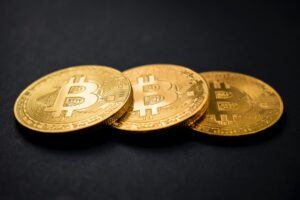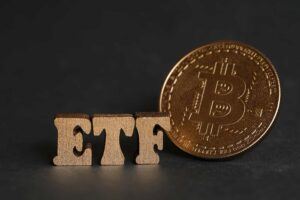While the leading cryptocurrency is slowly but surely making its way into the mainstream, only those users who really understand and use it correctly will benefit from its advantages. The number of Bitcoin wallets alone has risen by 8 million in the past year – and this amount accounts for over 20% of the total 38 million Bitcoin wallets. The adoption trend shows no signs of slowing down, as not only private investors, but also more and more companies and institutional investors are investing in Bitcoin (BTC). “Understanding Bitcoin” also means seeing the advantages of Bitcoin beyond the prices.
Understanding Bitcoin: is Adoption Unstoppable?
According to statistics, Bitcoin could soon cross the threshold to mass adoption. But despite the increased sentiment and record high prices, many Bitcoin holders are not always aware of the actual privileges and the correct procedure. Buying & trading Bitcoin is one thing, but holding it and staying in the game in the long term is something completely different. Understanding the true nature and proper storage of Bitcoin could make the difference between financial freedom and failure.
Different Ways of Storing Value
In order to understand the privileges of holding Bitcoin, it is first necessary to know the other options available for storing and saving value. For example, gold was the first globally recognized commodity of mankind for thousands of years. The famous precious metal was not only a symbol of wealth, but also served as a solid foundation for entire monetary systems. Over time, gold managed to maintain and continuously increase its value – but when it comes to transporting gold from one part of the world to another, this asset has clearly failed in terms of mobility.
Comparison of asset classes: Bitcoin versus Gold
Bloomberg Report: Bitcoin to become digital gold in 2020
Fiat currencies, on the other hand, are well equipped to transfer value quickly and worldwide thanks to emerging fintech and digital banking solutions. Although the economy based on fiat money tends to be restricted by a complex network of intermediaries and physical borders, it is still a functional option for sending and receiving money.
However, the value of fiat currencies is no longer tied to gold, as fiat currencies are now exclusively controlled by the central banks that (re)print them. The excessive printing of money by central banks is particularly common in times of crisis and its consequences are immediately noticeable. For example, the Federal Reserve has printed over $3 trillion since the start of the COVID-19 pandemic, almost doubling the circulating supply of US dollars in a single year.
Bitcoin versus Gold: Does BTC Outperform the Hedging Rival?
As a result of inflation, fiat currency is steadily losing purchasing power. Cash held in a savings account cannot be accrued with inflation rates. In addition, fiat assets are subject to seizure by governments and transfers are only limited to those recipients who are “recognized” by the bank.
Holding Bitcoin “Correctly” – That’s What Matters
Where gold and fiat currencies fail, Bitcoin shows its strength. Bitcoin was not only the best-performing store of value of the last decade, but is also gaining importance as a payment system. Bitcoin, which is not burdened by borders of any kind, is developing into a fast and global option for money transfer.
The rise of Bitcoin has triggered a boom in the asset sector, but by no means all of them grant the financial freedom inherent in Bitcoin. For example, the decision by PayPal to enable Bitcoin purchases was quite exciting, but brought with it a notable restriction: the buyers cannot manage their purchased bitcoins themselves or send them to their own wallet, but only have a kind of “certificate” that they own Bitcoin shares. However, this inability to independently control their crypto asset contradicts the values of financial self-sovereignty that Bitcoin should actually enable.
Connected: Buy Bitcoin and trade Bitcoin
Probably the biggest difference between Bitcoin and traditional money is that BTC is not only an asset, but also a money transaction protocol. Bitcoin not only fulfills the basic definition of money, but also the role of a payment processor. As a monetary network, Bitcoin processes transactions between parties and records them in a distributed public ledger – the blockchain.
Is Bitcoin the only true cryptocurrency?
Holding Bitcoin correctly therefore means having your own Bitcoin wallet, which also contains your own private keys. Only those who buy “real” Bitcoin will be able to safely store it in their own wallet and be part of the blockchain.
Anyone who ventures into the world of acquiring and holding Bitcoin becomes their own banker. This may seem scary at first glance – but the banks find it even more frightening. The disintermediation of banks is already in full swing through self-bankers. Bitcoin HODLers accordingly have a store of value that can be used relatively quickly as a means of exchange. The development of credit cards and digital payment processors such as PayPal has further decoupled money from physical currency.
But Bitcoin takes us even deeper into financial freedom by not only representing a store of value, but also decoupling its exchange from central banks and financial institutions.



